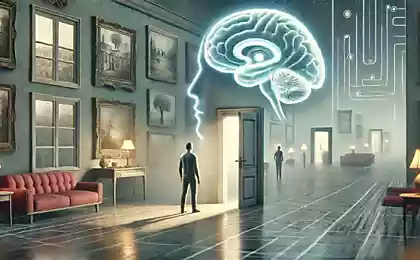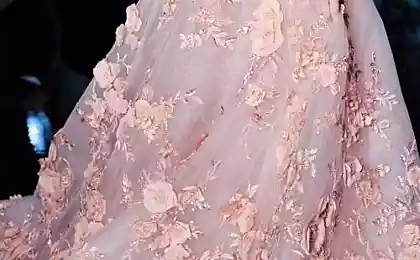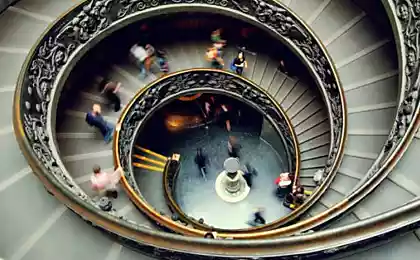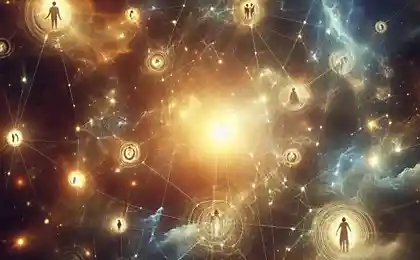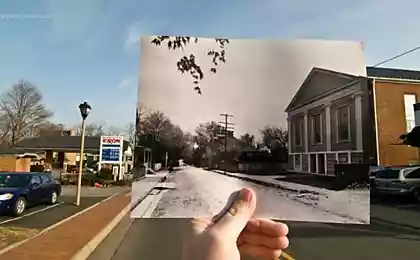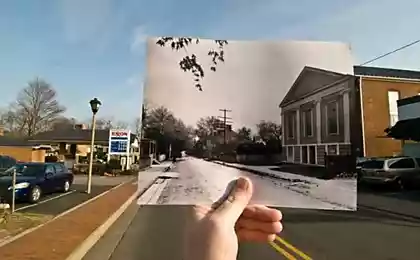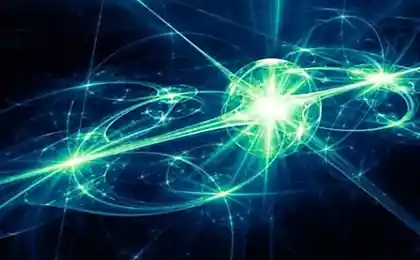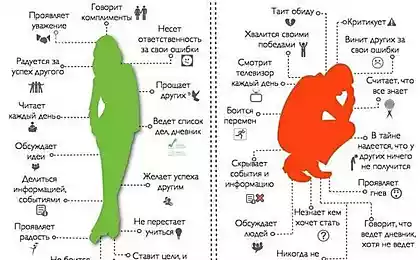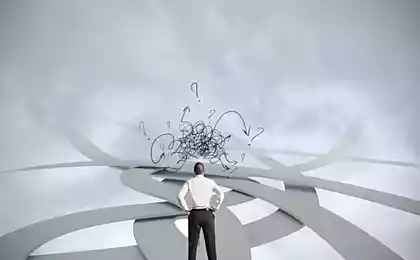417
How does the effect of deja vu
Deja vu (from the French "deja vu" — "already seen") is familiar to most people, the phenomenon in which the events are perceived as if they have ever been.
Unambiguous interpretation explaining the nature of the effect of deja vu, not today – instead, you can consider several different hypotheses: from the work of intuition or mental disorders before contact with another reality or time travel.
However, these versions are not mutually exclusive, like wave and corpuscular theories of light, so that attention is given by each of them.
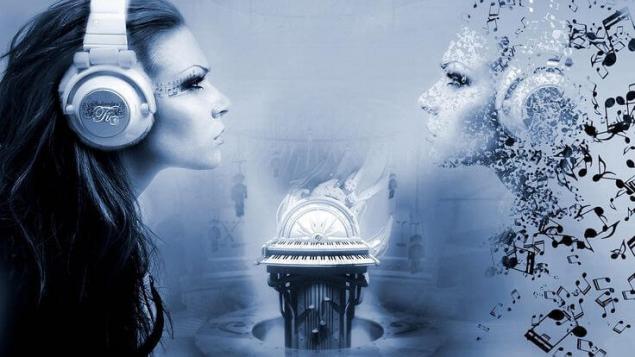
How does it happen?
To program an effect of deja vu is impossible – except in the movie "the Matrix" where Neo saw twice the same black cat, I realized: programs also sometimes fail. Another thing is that if you experience deja vu events happen once – but this does not prevent us to "remember". There are people whom we like a long time ago know, seen books, films, music or places are perceived as something half-forgotten, but which had already taken place in my life – but when it is, to remember does not work.
This raises the feeling that there is something supernatural, creates the illusion of possessing psychic abilities (who knows, perhaps, and not an illusion?) However, it is a mystical as soon dissolves into everyday life, and everything falls into place, leaving only a shadow of surprise and unanswered questions.
Children are not faced with the effect of deja vu – it is believed that for this they still have a clear enough mind (they simply do not notice such phenomena).
But there are two vozrastnyh period when the probability of occurrence of a phenomenon maximum. The first group includes teenagers 16-18 years – they already have their own perception of reality, but still very sensitive to what is happening.
The second group includes people from 35 to 40 years old is a fully formed personality, undecided on their vital status, and enriched with a certain amount of experience and achievements.
The history of the discovery of the phenomenon
The concept of "deja vu" first appeared in the book "the Future of psychology" Emile Baraka. In the yard was the end of the XIX century, a famous psychologist has completed the last year of University. His research also touched upon other related concepts: "desaveu" (already experienced), "degaetano" (already heard) and "jamais vu" (never seen).
In their studies Barak relied on known since hoary times, the facts – because with the effect of deja vu was familiar in antiquity, and then this idea wandered from books of different eras.
Since the XIX century for it came from well-known writers: Chateaubriand, Charles Dickens, Marcel Proust, Arthur Conan Doyle, Jack London, Clifford D. Simak, Lev Tolstoy. Initially, the academic world ignored the work Baraka, however, to write off a huge number of cases for mental disorders was impossible, and the phenomenon was finally established official name.
Now consider the theory of the origin of deja vu from a biological point of view.
Researchers from mit found that the origin of this phenomenon occurs in the temporal lobe of the brain — the dentate gyrus of the hippocampus. This Department deals with the search for analogies in memory and finds the differences between similar images. Thanks to the hippocampus we are able to distinguish past from present, as already seen from the new.
However, if the work of this cerebral part fails for a small fraction of a second to see the way into the center of the memory, and then there comes a new request from the hippocampus: is memory something like that? The brain immediately gives more "not cold" memory, which is perceived as something of an uncertain past.
In other words, we do not notice that we see something for the first time as much as two times instead of one, so as not to remember the first "session". The work of the hippocampus can be disrupted in a similar way as a result of stress, fatigue, adverse environmental conditions (heat, cold, atmospheric pressure), and in a state of depression and various diseases. published
P. S. And remember, only by changing their consumption — together we change the world! ©
Join us in Facebook , Vkontakte, Odnoklassniki
Source: vk.com/the_intellectuals?w=wall-43503264_73477
Unambiguous interpretation explaining the nature of the effect of deja vu, not today – instead, you can consider several different hypotheses: from the work of intuition or mental disorders before contact with another reality or time travel.
However, these versions are not mutually exclusive, like wave and corpuscular theories of light, so that attention is given by each of them.

How does it happen?
To program an effect of deja vu is impossible – except in the movie "the Matrix" where Neo saw twice the same black cat, I realized: programs also sometimes fail. Another thing is that if you experience deja vu events happen once – but this does not prevent us to "remember". There are people whom we like a long time ago know, seen books, films, music or places are perceived as something half-forgotten, but which had already taken place in my life – but when it is, to remember does not work.
This raises the feeling that there is something supernatural, creates the illusion of possessing psychic abilities (who knows, perhaps, and not an illusion?) However, it is a mystical as soon dissolves into everyday life, and everything falls into place, leaving only a shadow of surprise and unanswered questions.
Children are not faced with the effect of deja vu – it is believed that for this they still have a clear enough mind (they simply do not notice such phenomena).
But there are two vozrastnyh period when the probability of occurrence of a phenomenon maximum. The first group includes teenagers 16-18 years – they already have their own perception of reality, but still very sensitive to what is happening.
The second group includes people from 35 to 40 years old is a fully formed personality, undecided on their vital status, and enriched with a certain amount of experience and achievements.
The history of the discovery of the phenomenon
The concept of "deja vu" first appeared in the book "the Future of psychology" Emile Baraka. In the yard was the end of the XIX century, a famous psychologist has completed the last year of University. His research also touched upon other related concepts: "desaveu" (already experienced), "degaetano" (already heard) and "jamais vu" (never seen).
In their studies Barak relied on known since hoary times, the facts – because with the effect of deja vu was familiar in antiquity, and then this idea wandered from books of different eras.
Since the XIX century for it came from well-known writers: Chateaubriand, Charles Dickens, Marcel Proust, Arthur Conan Doyle, Jack London, Clifford D. Simak, Lev Tolstoy. Initially, the academic world ignored the work Baraka, however, to write off a huge number of cases for mental disorders was impossible, and the phenomenon was finally established official name.
Now consider the theory of the origin of deja vu from a biological point of view.
Researchers from mit found that the origin of this phenomenon occurs in the temporal lobe of the brain — the dentate gyrus of the hippocampus. This Department deals with the search for analogies in memory and finds the differences between similar images. Thanks to the hippocampus we are able to distinguish past from present, as already seen from the new.
However, if the work of this cerebral part fails for a small fraction of a second to see the way into the center of the memory, and then there comes a new request from the hippocampus: is memory something like that? The brain immediately gives more "not cold" memory, which is perceived as something of an uncertain past.
In other words, we do not notice that we see something for the first time as much as two times instead of one, so as not to remember the first "session". The work of the hippocampus can be disrupted in a similar way as a result of stress, fatigue, adverse environmental conditions (heat, cold, atmospheric pressure), and in a state of depression and various diseases. published
P. S. And remember, only by changing their consumption — together we change the world! ©
Join us in Facebook , Vkontakte, Odnoklassniki
Source: vk.com/the_intellectuals?w=wall-43503264_73477
